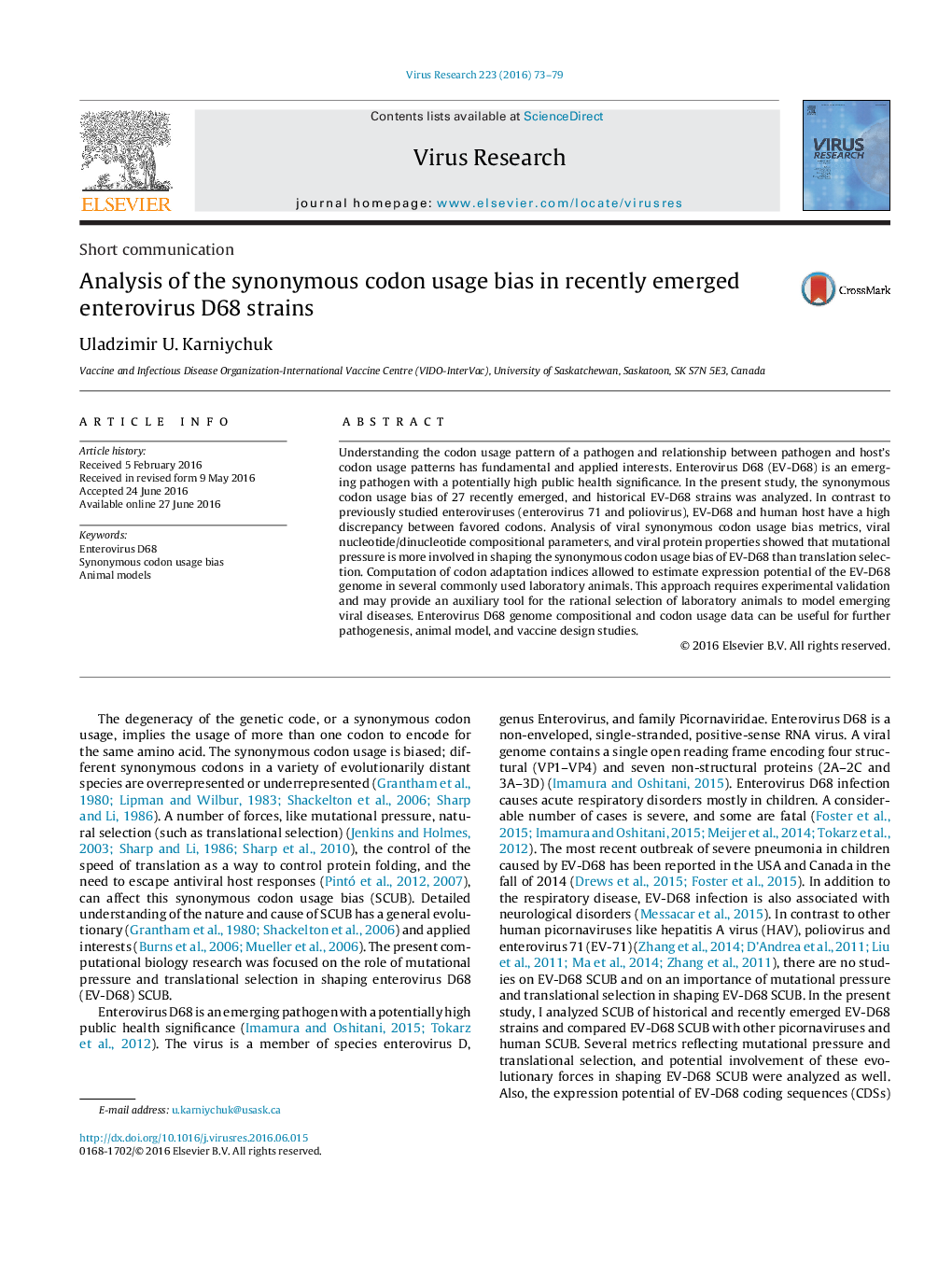| کد مقاله | کد نشریه | سال انتشار | مقاله انگلیسی | نسخه تمام متن |
|---|---|---|---|---|
| 6142007 | 1594334 | 2016 | 7 صفحه PDF | دانلود رایگان |

- Enterovirus D68 (EV-D68) and human host have a high discrepancy between favored codons.
- Mutational pressure is more involved in shaping the synonymous codon usage bias of EV-D68 strains than translation selection.
- Computation of codon adaptation indices allowed to estimate the expression potential of EV-D68 genome in laboratory animals.
Understanding the codon usage pattern of a pathogen and relationship between pathogen and host's codon usage patterns has fundamental and applied interests. Enterovirus D68 (EV-D68) is an emerging pathogen with a potentially high public health significance. In the present study, the synonymous codon usage bias of 27 recently emerged, and historical EV-D68 strains was analyzed. In contrast to previously studied enteroviruses (enterovirus 71 and poliovirus), EV-D68 and human host have a high discrepancy between favored codons. Analysis of viral synonymous codon usage bias metrics, viral nucleotide/dinucleotide compositional parameters, and viral protein properties showed that mutational pressure is more involved in shaping the synonymous codon usage bias of EV-D68 than translation selection. Computation of codon adaptation indices allowed to estimate expression potential of the EV-D68 genome in several commonly used laboratory animals. This approach requires experimental validation and may provide an auxiliary tool for the rational selection of laboratory animals to model emerging viral diseases. Enterovirus D68 genome compositional and codon usage data can be useful for further pathogenesis, animal model, and vaccine design studies.
Journal: Virus Research - Volume 223, 2 September 2016, Pages 73-79